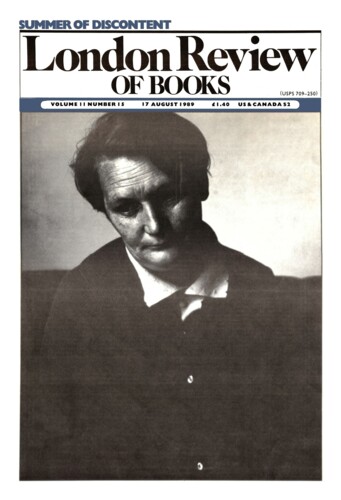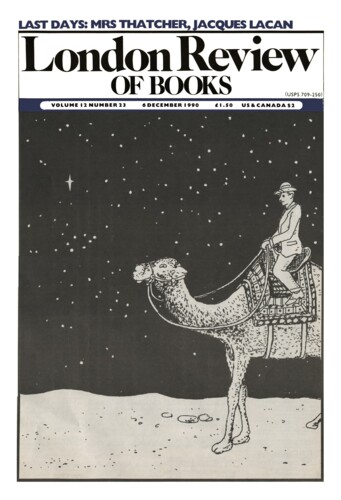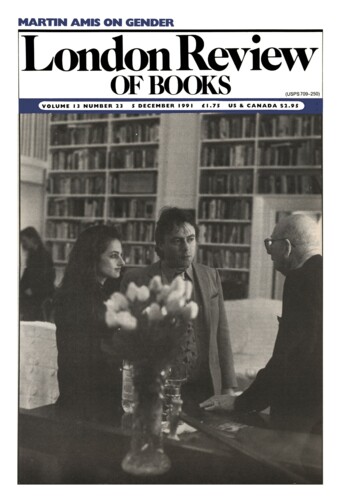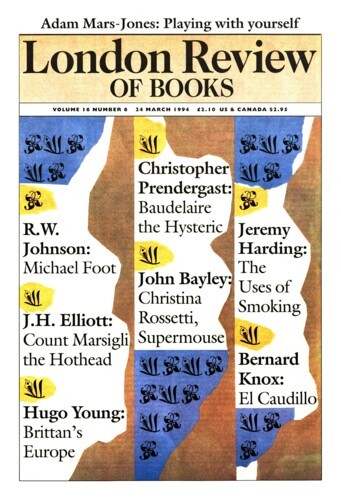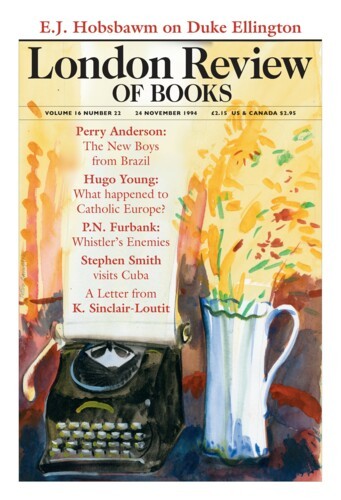Falklands Retrospect
Hugo Young, 17 August 1989
When the Falklands War broke out, the Permanent Under-Secretary of State at the Foreign Office was Sir Michael Palliser. He was not disposed to blame his department for the catastrophe. Unlike the Prime Minister, for whom the war was proof of Foreign Office incompetence if not perfidy, Sir Michael pleaded after the event that he had been, in a sense, let down. Ruminating at leisure to Michael Charlton, he recalls that his old department ‘has always had to accept a relatively low level of hope and expectation, because it has never been very easy to persuade ministers and cabinets to pay much attention, either to Argentina or to the Falklands’. He might have added that his expectations of the public, the voters who put these ministers into office, were lower still. In the era of modern communications, the Falklands War was the first war in which the vast majority of citizens of the victorious power began with no idea even of the whereabouts of the territory in dispute. These post-colonial specks in the South Atlantic were, supremely, a diplomat’s preoccupation.
